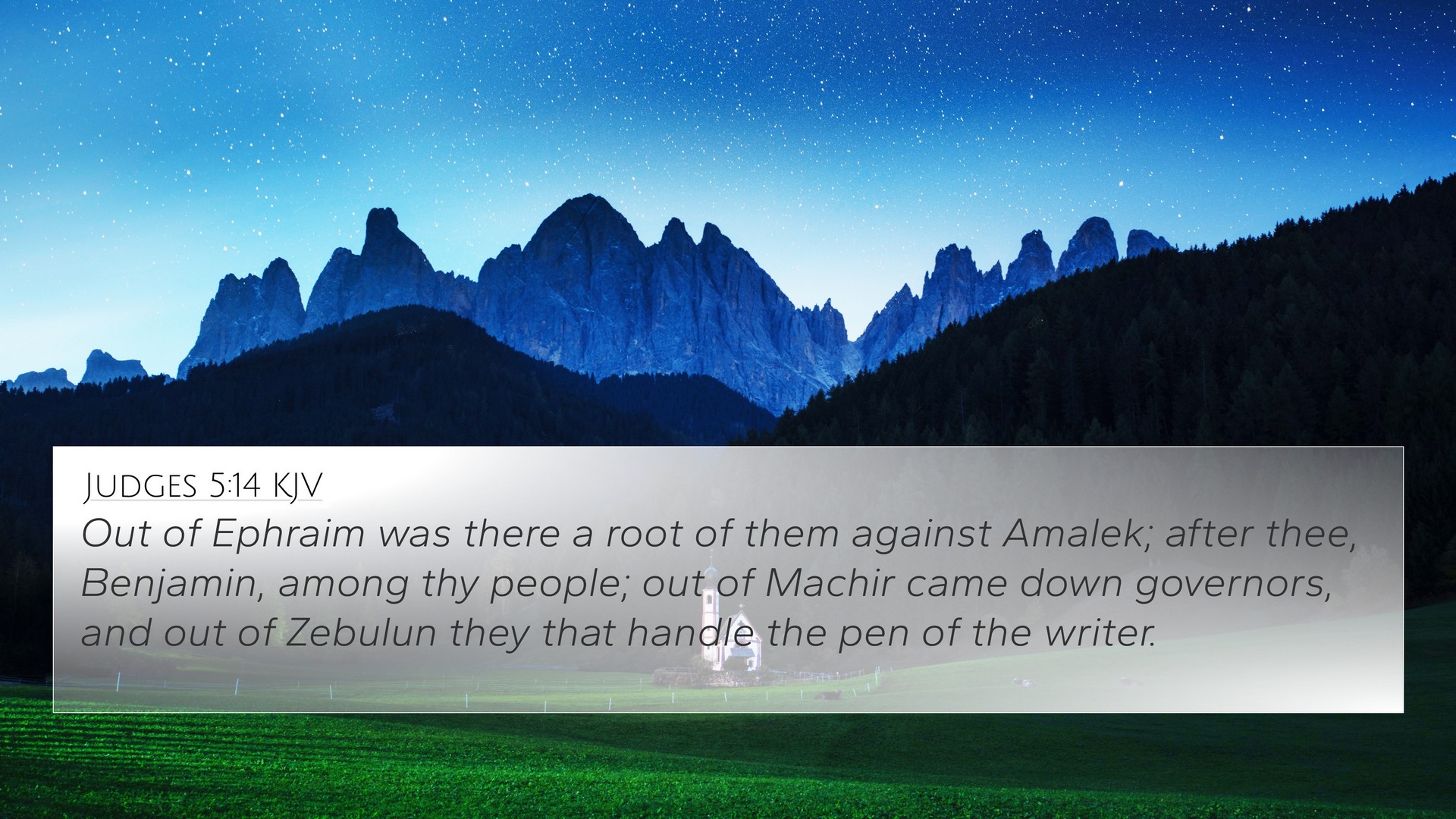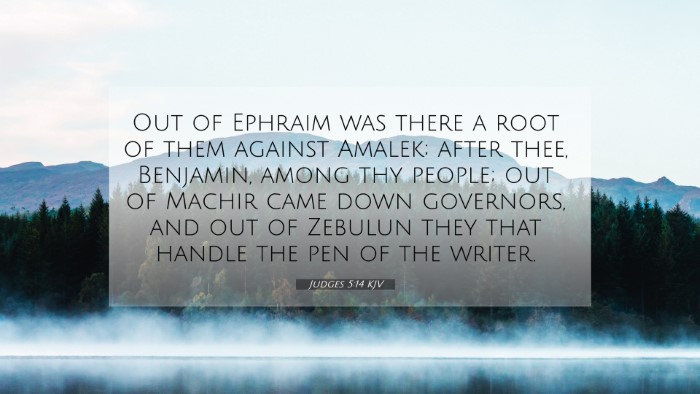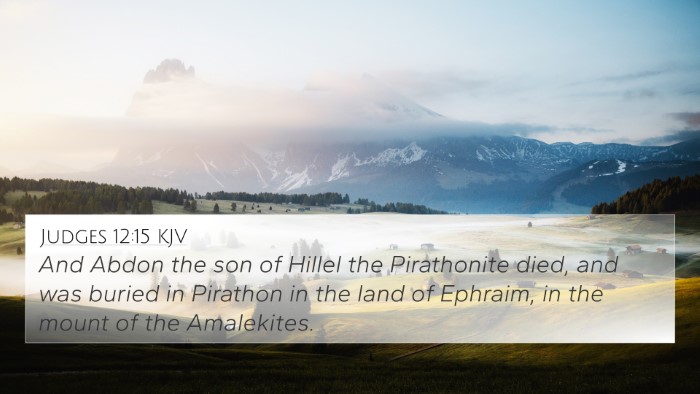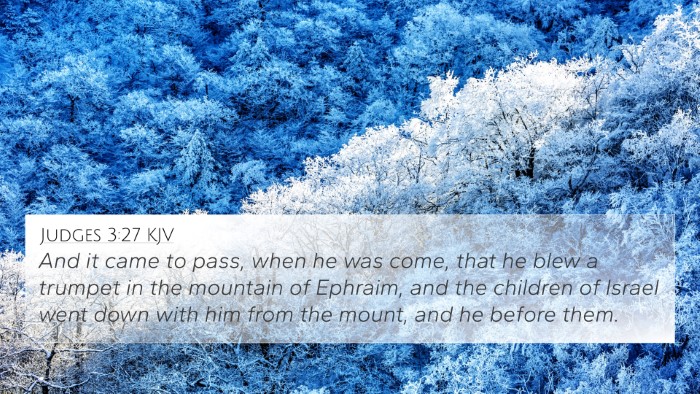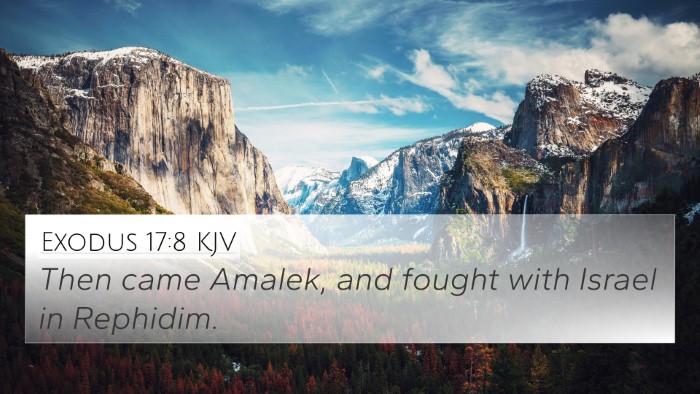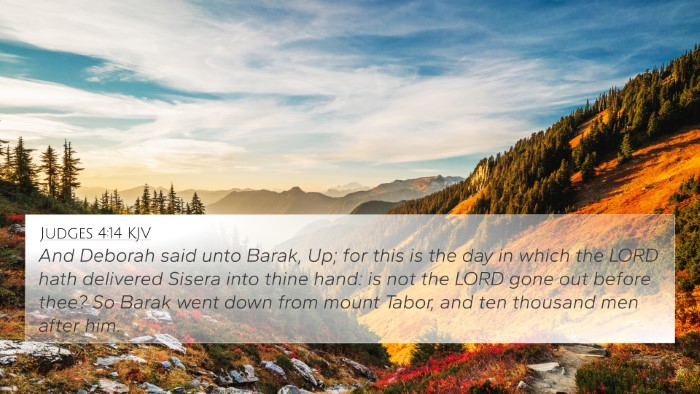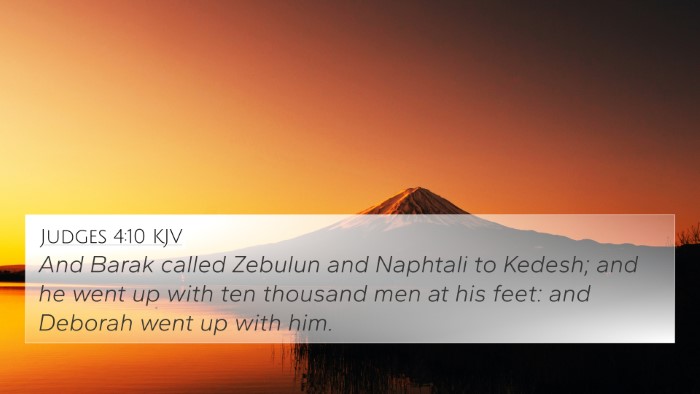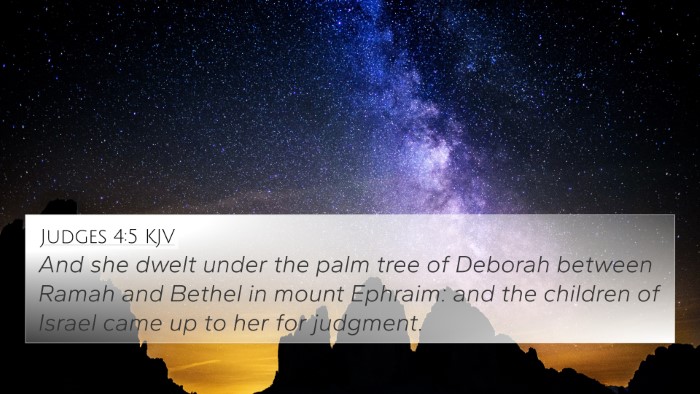Understanding Judges 5:14
Judges 5:14 is a verse that forms part of the Song of Deborah, a poetic narrative celebrating the victory of the Israelites over their oppressors. This scripture highlights the contributions of various tribes of Israel in the battle against the Canaanites. The verse reads:
"Out of Ephraim came down they whose root is in Amalek: after thee, Benjamin, among thy people; out of Machir came down governors, and out of Zebulun they that handle the pen of the writer."
Meaning and Analysis
The verse encapsulates a call to remember the heroes from different tribes who rallied around Deborah and Barak to lead Israel in warfare. Each tribe contributed uniquely, and their unity led to a significant victory. Below is a deeper exploration of its meaning, derived from various public domain commentaries.
Key Insights from Commentators
-
Matthew Henry:
Henry emphasizes the unity and collective effort of the tribes of Israel. He suggests that the diverse backgrounds of the warriors underline God's ability to draw together disparate individuals for His purposes. The mention of Ephraim, Benjamin, Machir, and Zebulun speaks to God's providential plans, whereby He uses all kinds of people in His work.
-
Albert Barnes:
Barnes notes the historical significance of Ephraim, stemming from Amalek, often viewed as an enemy of Israel. He points out that this verse underlines the importance of the tribal identity and historical roles in Israel’s narrative. The wordplay on 'governors' from Machir signifies leadership and military authority, reinforcing the theme of divine election in leadership.
-
Adam Clarke:
Clarke highlights the skill of Zebulun, described as 'the pen of the writer', indicating not just the warrior aspect but the intellectual contributions to the community. This showcases that effective leadership also includes knowledge, wisdom, and the ability to guide through written communication.
Thematic Connections
This verse links to several themes in the Bible, such as unity in diversity, the role of God’s election in leadership, and the importance of collective effort in achieving objectives. It serves as a reminder of how different groups can come together for a common cause.
Bible Verse Cross-References
For a richer understanding of Judges 5:14, here are some relevant cross-references:
- Exodus 17:8-13: This passage recounts the battle against Amalek and reflects on the roots of conflict that stem from this verse.
- 1 Chronicles 12:1-2: Discusses warriors from different tribes, connecting to the valor of Ephraim and Benjamin.
- Hebrews 11:32-34: Mentions Deborah and Barak, affirming their faith and courage.
- Joshua 17:10: Touching on the tribal boundaries of Ephraim and Manasseh, providing context for their roles.
- Deuteronomy 33:13-16: A blessing upon the tribes, including references that can draw parallels to their contributions in battles.
- Genesis 49:10: Prophetic insights regarding Judah and leadership roles in Israel and its relevance to tribal dynamics.
- Matthew 28:19-20: The Great Commission, paralleling the encouragement for unity among believers today.
Applications for Today
This verse challenges the modern believer to reflect on how God can use various backgrounds and gifts in His service. It encourages a deep sense of community and collective action among God’s people.
SEO Keywords Integration
For those involved in Bible study, understanding Bible verse cross-references can significantly enhance comprehension. By linking Bible scriptures from Judges 5:14 and exploring Bible verses that relate to each other, students can uncover thematic connections and comparative Bible verse analysis that enriches their faith.
Conclusion
Judges 5:14 invites readers to see the broader context of biblical unity, cooperation, and divine purpose among the tribes of Israel. Expanding one’s study through cross-referencing Biblical texts can reveal deeper meanings and implications, encouraging believers to connect with God’s ongoing narrative today.
